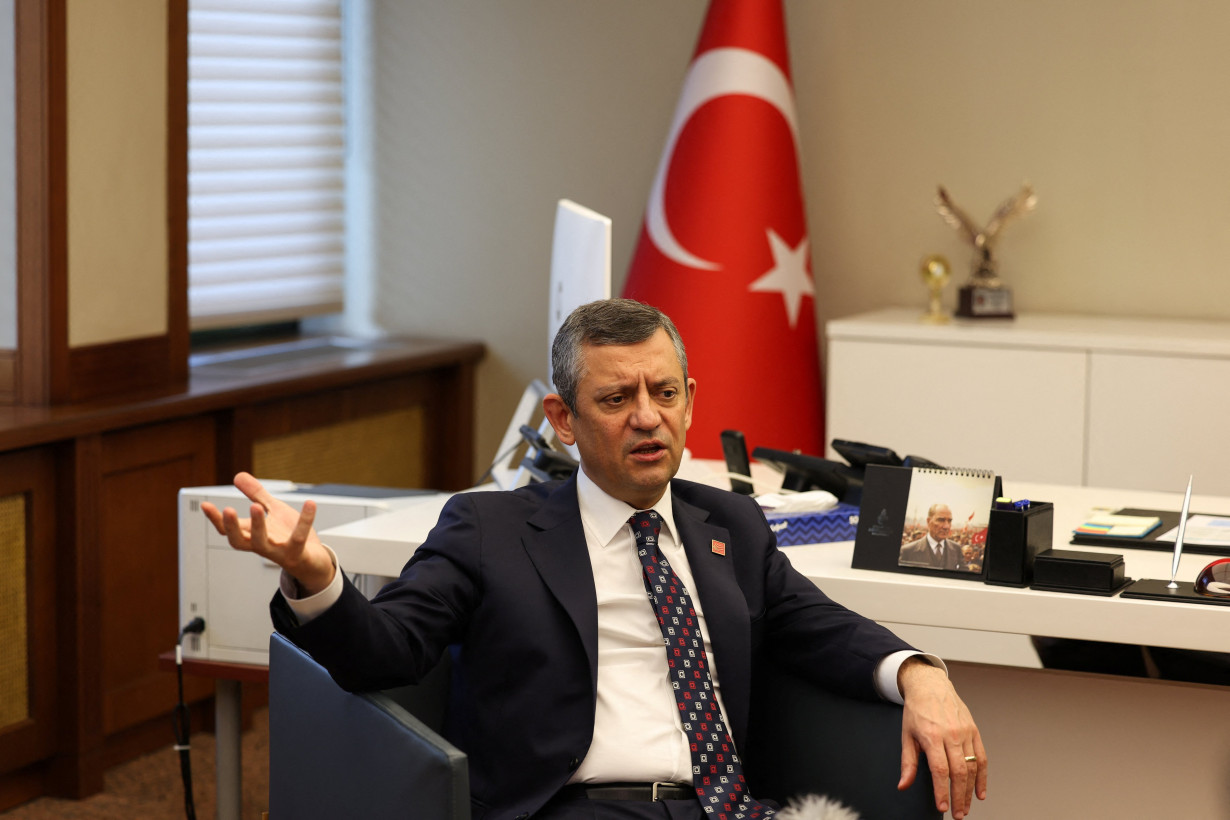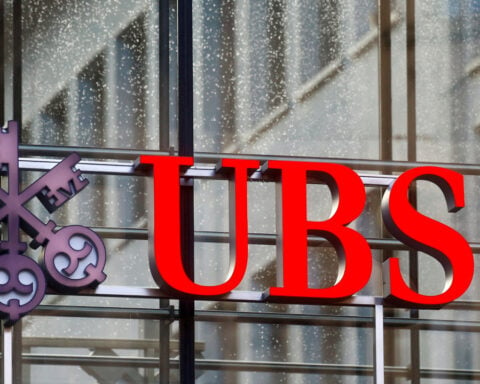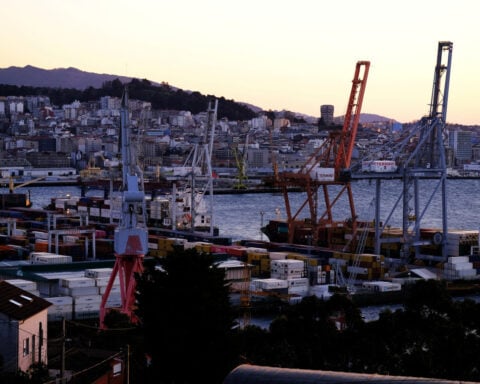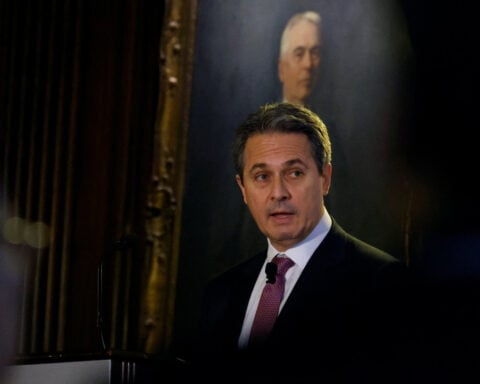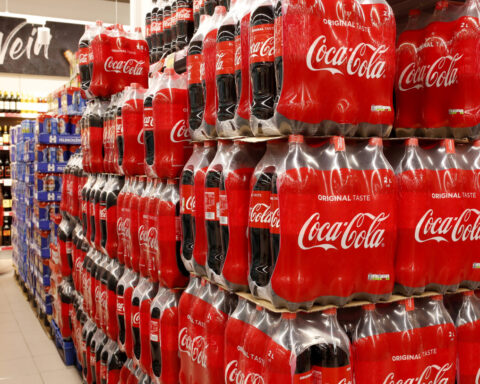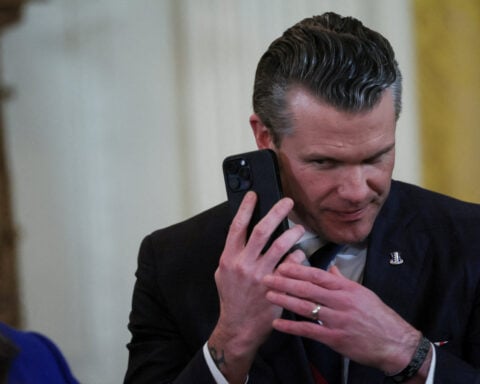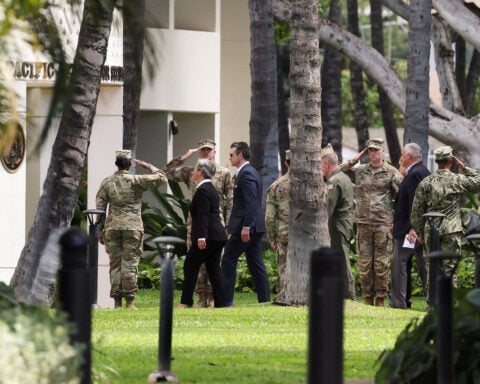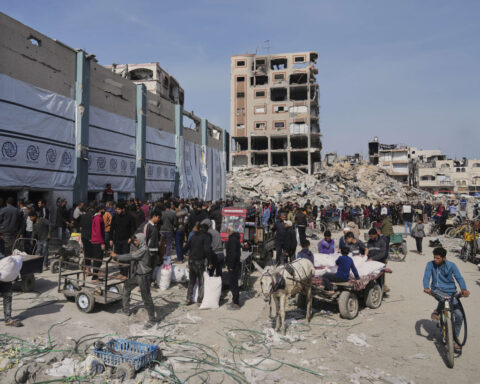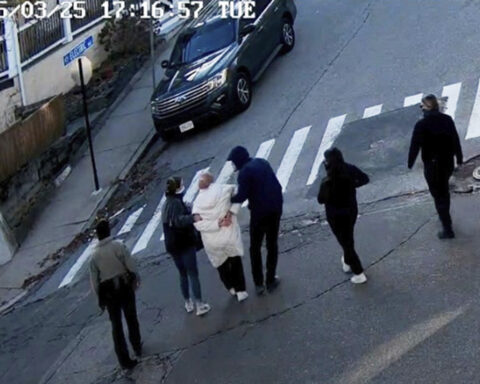By Huseyin Hayatsever and Jonathan Spicer
ISTANBUL (Reuters) - Turkey's opposition, galvanized by widescale protests over the jailing of Istanbul's mayor, is hoping to keep the momentum going in part by calling for a boycott of TV stations and businesses it says are "ignoring the moment".
Turkey has been rocked by the largest street protests in more than a decade following the arrest and then, on Sunday, the jailing of Mayor Ekrem Imamoglu, widely seen as President Tayyip Erdogan's most formidable political rival, pending trial on corruption charges that he strongly denies.
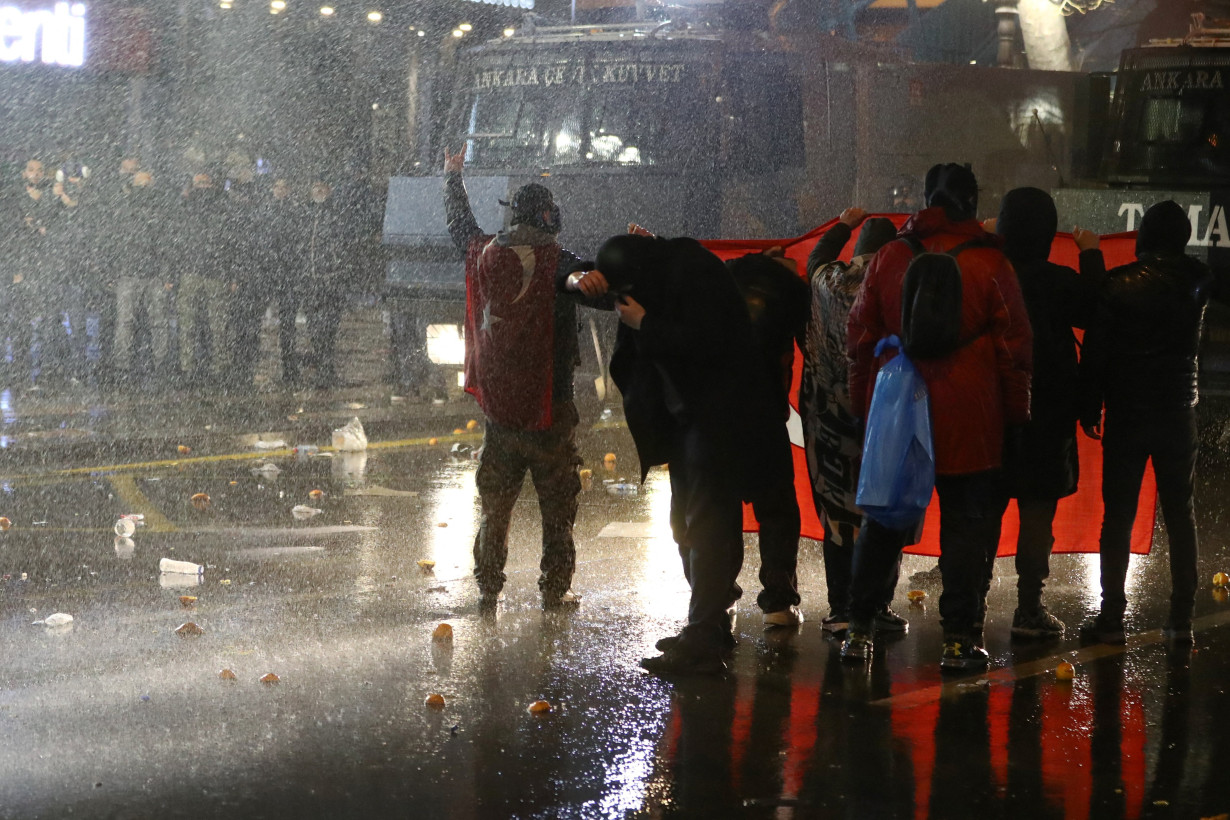
Ozgur Ozel, chairman of the mayor's Republican People's Party (CHP), stood atop a bus before hundreds of thousands of supporters in Istanbul late on Sunday and urged people to boycott entities he said were profiting from them while supporting the government.
The vast majority of Turkish mainstream media is seen as pro-government and the big channels have shown little footage of the nationwide demonstrations.
"We are taking note of every television channel that ignores this moment," Ozel said, without naming any.
Ozel also accused advertisers on the channels of catering to opposition voters while "serving (Erdogan's) palace", and vowed to soon name them alongside the targeted media owners.
"This is not just about not watching their channels - whoever buys their products is complicit," he said.
Sunday's court decision to remove Imamoglu from office and to jail him pending trial has inflamed the protesters, who see the moves as politically motivated and anti-democratic, charges the government denies.
The jailing caps a months-long legal crackdown on opposition figures and the removal of other elected officials from office, in what critics say is a government attempt to hurt their election prospects.
Turkish markets, rattled by the unrest, plunged last week, though stocks recovered some ground on Monday after the country's capital markets board banned short selling.
PRO-ERDOGAN MEDIA
Mainstream broadcasters and newspapers have become strongly supportive of Erdogan's government after years of state legal and financial pressure, corporate acquisitions and self-censorship.
While the big channels have largely avoided showing protests, the few independent and opposition stations have had almost non-stop coverage.
The broadcasting watchdog RTUK said in a post on social media platform X on Saturday that stations airing live coverage of protests could have their licences revoked for "biased" broadcasts. Some channels then cut away from coverage of police clashes with the protesters.
Separately, X banned access to hundreds of accounts last week after a request from Turkish authorities but said it objected to the court rulings.
Reporters Without Borders, a free speech advocate, ranked Turkey 158th of 180 countries in its 2024 press freedom index. It said some 90% of media was under government influence, prompting Turks to turn more to opposition or independent news outlets.
Ozel urged supporters to use their purchasing power to bring some businesses "to their knees".
"If they run a restaurant chain but refuse to see this crowd, they won't sell food here. Either they acknowledge us, or they sink," he said.
Wolfango Piccoli, co-president of consultancy Teneo, said that even though boycotts in Turkey are usually brief and lack impact, "the key for the CHP is to maintain the momentum and this unprecedented move could help on that front".
Civil disobedience has been dramatically curbed since the 2013 Gezi Park protests against Erdogan's government prompted a violent state crackdown - footage that was also largely ignored by mainstream media at the time.
(Reporting by Huseyin Hayatsever, Ece Toksabay and Jonathan Spicer; Editing by Gareth Jones)

 Trump has begun another trade war. Here's a timeline of how we got here
Trump has begun another trade war. Here's a timeline of how we got here
 Canada's leader laments lost friendship with US in town that sheltered stranded Americans after 9/11
Canada's leader laments lost friendship with US in town that sheltered stranded Americans after 9/11
 Chinese EV giant BYD's fourth-quarter profit leaps 73%
Chinese EV giant BYD's fourth-quarter profit leaps 73%
 You're an American in another land? Prepare to talk about the why and how of Trump 2.0
You're an American in another land? Prepare to talk about the why and how of Trump 2.0
 Chalk talk: Star power, top teams and No. 5 seeds headline the women's March Madness Sweet 16
Chalk talk: Star power, top teams and No. 5 seeds headline the women's March Madness Sweet 16
 Purdue returns to Sweet 16 with 76-62 win over McNeese in March Madness
Purdue returns to Sweet 16 with 76-62 win over McNeese in March Madness
